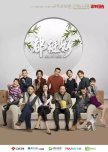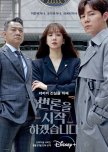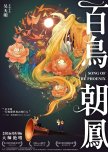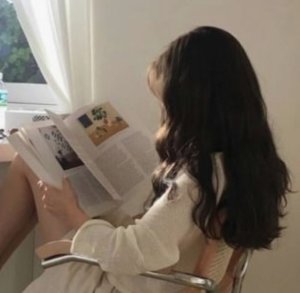
If I were to describe this story, I'd say, imagine tossing a stone into a pond. This drama is about the ripples extending outwards from the stone; but not only are we looking at these ripples, we are also prompted to ask ourselves why the stone was tossed in the first place. It's of interest to note that the title is translated literally as, "The Distance Between Us and Evil," which really says a lot, because a major theme in this series is examining the distance between labels: good/evil, victim/perpetrator. In the end, the story serves as a wakeup call for society, a reminder that we all tread between the lines.
I would recommend this to those who prefer serious, heavy dramas that bring important topics to the table and enjoy character studies. This is produced by HBO Asia, so those with HBO subscriptions may be able to access it; if not, hopefully subtitles surface soon.
Was this review helpful to you?

Single mothers, especially, are the stars of this drama. Our main female character is one. Our main male character was raised by one. And that’s just the start (to say more would be spoiling things). In fact, in this entire drama save for three characters, fathers and men largely take a backseat in the mainly female-driven story. The heartrending way the drama talks about mothers makes this a perfect watch for everyone. Maybe you grew up motherless, maybe your mother physically or emotionally traumatised you, maybe your mother was overbearing, maybe you loved your mother and lost her, maybe your mother is just a phone call away, maybe you used to be a mother, maybe you are about to become one, maybe you wish to be one... no matter who you are, I think this story will be healing, relatable, and ultimately empowering for the viewer.
It’s important to come into this not expecting it to be just one thing. Neither does it set out to establish itself as a “jack of all trades” type of drama. The characters are genuine, the story is honest, and everything unfolds rather mellowly. I would say there is some meandering in some parts, but let the characters grow on you, keep your judgement at the door. Immerse yourself and you’ll feel glad to be able to spend a bit more time with them.
Oh, and remember that no one is weak. We’re all just seeds, drifting and struggling to plant ourselves and take root, hoping to eventually flower and bloom. Give these characters the chance to do that, and give yourself the chance to too.
Was this review helpful to you?

Firstly let me say that the acting is on point, no surprise there at all. These are all talented cast who've worked for many years. Guo Jinfei as Su Mingcheng was the overall highlight for me as I felt his character was the most difficult to grasp and had some intense dialogue, many of which were improvised. Of all the cast, I hope he gets some recognition for his performance. They also added a touch of Suzhou culture to the drama by inserting Suzhou "pingtan" (a traditional form of performing arts sung in the Suzhou dialect) that usually matched the scenes they were edited to.
It's hard for me to review this for several reasons. I think most people watching this would enjoy it as a good, emotional family drama. But let's set aside emotional manipulation and convenient plot devices because I feel that's lazy writing. What ruined this show for me was the ending that broke away from the novel's original ending in order not to aggravate TV audience expectations. The amount of toxicity and abuse in the Su family could not have realistically been resolved the way it was in the show. As a result, characters went through typical whitewashing, which I think completely missed the point of the original story and does a huge disservice to Su Mingyu and all people who have grown up in similar environments.
The message this drama passes along is that family is everything and no matter what, you should always forgive family because forgiveness sets you free. But I disagree, I find this message extremely invalidating and oftentimes unrealistic. Letting go of hatred is not equivalent to forgiving those who have abused you emotionally or physically. No amount of whitewashing, no reasons, serve as justifiable validation for people to treat you like trash, ever. Period. You can learn to let go of hatred so that you can free your present self from the grasp that shitty events in the past have on you without forgiving people who do not deserve your forgiveness, even if those people are family.
And that's why I'm conflicted about my thoughts about this. I don't feel like I have the right to decide how other people, such as Mingyu, personally handle these situations. We all choose our own way of moving on and letting go, and at best we can only be supportive instead of judgmental of what makes other people feel empowered and happy. I personally feel that the direction this drama went is rather fantastical and is something more often wished for than actually happens in real life. For a realistic production such as this, I expect less wish gratification and more stark realism. I can only say that in the original novel, Mingyu did not make certain choices she made in the drama, and I think the drama should have at the very least kept the choices she made in the book. Firstly because they make more sense character-wise, even if they are less wholesome; secondly because while I can't make decisions for Mingyu, the original author can and did, but her choices weren't respected. Most Chinese family dramas choose this type of ending, All Is Well did not bring anything new to the table even though it had the opportunity to.
There is also one error in the writing that doesn't actually affect the story, I only want to point it out because this is supposed to be a realistic drama and I really feel like the writer should have done some work here: The entire premise of this story is unrealistic in itself due to the fact that China established the one-child policy in 1980. The Su kids are obviously born after 1980, so yeah. Especially in a major area like Suzhou, given the Su parents' occupations (hospital nurse and school librarian) it's impossible that the Su family could have had 3 children.
Was this review helpful to you?

This review may contain spoilers
Miraculously, I made it through all 50 episodes (albeit with a lot of skimming.) Let me preface this review with some hopefully helpful info first.1) If you are a Tiffany Tang/Luo Jin enthusiast, you should note that although Tiffany Tang is listed as the lead role, Director Liu Jiang stated in several interviews that this is NOT a show with a clear female lead, and this is not one of those romances where two female leads fight over some guy. It is also not a show with romance as its key.
2) I've seen people comparing the title of this show to the Taiwanese show "The Way We Were" and the classic film "The Way We Were." Both of these comparisons are wrong, because the show's title is lost in translation. Its Chinese title is a line in a classical poem by Tao Yuanming. The poem talks about the poet's own experience as a government official, and all the corruption and nepotism he witnessed that ended up angering him and leaving him to give up his title and "return" home -- which is the true meaning of this show's title, and the concept this show is based upon.
"To get out of this and go back home! [This line here is the show's title.]
My fields and garden will be overgrown with weeds--I must go back. [Because corruption rots you from the inside.]
It was my own doing that made my mind my body's slave
Why should I go on in melancholy and lonely grief?
I realize that there's no remedying the past
But I know that there's hope in the future.
After all I have not gone far on the wrong road
And I am aware that what I do today is right, yesterday wrong."
Now that I've got that out of the way, let's get on with the review.
The Acting: All right, so, I have never been a fan of Luo Jin or Tiffany Tang (that's not to say I don't like them, I'm just ambivalent and don't go out of my way to watch their shows) and to be honest, I was not floored by their acting in here. On the contrary, I was pleasantly surprised by the acting of Female 2. I think her name is Amelie Xu... a quick search on Baidu tells me that she's a newbie in the ent. circle, this might be her first major TV role. Extremely impressive, imo. In fact, I think it would have been better to name this girl as the female lead, but obviously for marketing reasons they wouldn't have since as a newbie, she wouldn't bring in ratings. The actors of the parental units are all very well-known "old" actors with impressive careers -- I wish I had seen more of them, especially the two corrupt fathers. It would've made the show more bearable for me. Another actor that surprised me was that of Shu Che's father's mistress. Also, obligatory: The English in here sucks. I know it's not their native language, but you'd think these actors would've put more effort into comprehensible English pronunciation considering they're acting as graduate students who are good enough to get into fake-Stanford University. There's a difference between speaking English with an extreme accent and just vocalizing the sounds of English cus you have no idea wtf you're saying and you're just bs'ing your way through your lines.
The Story: It's hard for me to review the story without going into specifics that may or may not be considered spoilers, so I'll just say that the concept of this story could have, and should have, been great. (If I took a shot for every time I thought this about a cdrama, I'd be dead, honestly.) I thought the title was clever, and it even amazed me that they drew from a classical Chinese poem lol. You don't get a lot of cdramas these days where the creators put *that* much thought behind their stories. I could even have handled the extremely slow pace, if only it had used the slow pacing to flesh out important things that contributed to the story somehow. Think about it, this could have been a really deep show using Tao Yuanming's poem as its linchpin, discussing the issues of nepotism and corruption by those in power. I actually think the writers and the director genuinely tried, otherwise they would not have included the poem in the first place, but for lack of skill or whatever reason, they didn't succeed. Ultimately, this is (or rather, is supposed to be) a story about morality and ethics.
Should you watch this?: Listen, if you're a *die-hard* fan of Tiffany or Luo Jin, or both of them, as I am assuming the vast majority of those who have this show on their list are, skim for their scenes. If you're the average c-drama viewer, I'd suggest not wasting your time. Unless you're like me and like to drown in the sorrows of lost potential. However, I do recommend watching Female Lead 2. I see great things in her future and I hope better scripts are coming her way, given the positive attitude Chinese netizens have towards her acting in this show.
Was this review helpful to you?

What is remembered, lives.
I rarely feel compelled to write drama reviews, but I think this drama is an underrated gem of 2022, so I'd like to encourage people to watch it.Let's first talk about romance, since I know that's what the majority of drama watchers look for. This drama is the epitome of "slight romance." The leads have a lot of chemistry, and for such a short drama without outright romance, it has skinship, tender moments, saviour moments; basically, it has the standard things that romance watchers want. Heck, it even has marriage talk. So I hope you aren't put off by others saying there's "no romance," because it's not entirely true.
Moving on to the story now. This drama, being only 12 episodes long, needs to tell a story very succinctly and focus only on the main plot. There are lots of threads that some may feel were not closed, but I have to say, I think it was quite intentional. This drama was inspired by a book of essays by a Korean public defender detailing his experiences helping the marginalized, most vulnerable members of society. It's not a drama about any character's personal life story or traumas. Its focus is on the law--how it can fail the socially disadvantaged, how it can be bent to the will of those in power. What it means to take responsibility for one's actions and choices, how heavy the burden of being wronged can weigh on people, how much it means to be listened to. So we're not here to watch Chak-hee or Si-baek's life stories. They are connected--along with other characters--to certain actions and events that have propelled them along certain trajectories in life until they came to the point where they are in the drama. We're here to see how and why that happened.
The female lead's character development is one of the most enjoyable to watch. I've already mentioned it, but the leads have a lot of chemistry, and both actors are extremely talented. From the very start, you're immersed in the mystery of how all these characters and events are connected. The episodes are very binge-worthy, because each one ends in a cliffhanger revelation. A lot of crime dramas have you asking the question "who," but in this drama, I felt the "who" was extremely obvious. My biggest question was "why."
I think the antagonists in this drama were written and acted well, because I usually have a hard time sitting through scenes of horrible people getting away with things. This drama chooses not to truly reveal the extent of horrific things that have taken place until the end. In other dramas, the frustrating thing is usually that we as viewers know something because we're already told or shown, but the characters don't know a thing. In this drama, we discover truths at almost the same pace as our female lead, alleviating the frustration.
Overall, at only 12 episodes, I think this drama is more than worth anyone's time.
Was this review helpful to you?

There is nothing extraordinary or particularly phenomenal about "Song of the Phoenix," yet it possesses a distinctly Chinese spirit, reminiscent of Zhang Yimou's 1984 film, "Yellow Earth." This kind of film is incredibly rare in China nowadays, where directors are more interested in creating the next Michael Bay-wannabe movie, imitating Korean/HK films, or shoving idols and "fresh meat" actors who can't act but are popular and hence rake in cash into films that are shallow and soulless.
The journey of the suona in this film from a highly coveted instrument to one that is abandoned lead me to believe that Wu Tianming meant this as a message to both filmmakers and audiences in China alike. It also criticises Chinese society's obsession with brands, looks, and inability to patiently sit down to take in a reflective story with depth. It compels Chinese audiences to reflect why they have abandoned their culture for Western materialism. I see this issue in the Chinese TV industry as well these days: Grand productions with budgets of billions of dollars used to support dramas that offer very little story, or ones that recycle the same reused plots over and over again. Many veterans of the Chinese entertainment industry have stood up in recent years to criticise the demise of Chinese entertainment, but to no avail.
It takes an intimate understanding of the ways in which China has changed in the last 20 years to truly feel the depth of this film's messages, but I believe that all viewers regardless of culture will be able to connect to the weary despair the suona embodies. Ultimately, "Song of the Phoenix" is not a technically special film, but it provides excellent commentary on the rapid decline of Chinese culture within China. I truly wish that filmmakers, TV producers, and screenwriters in China would take a page from Wu Tianming's book in the way they approach their future storytelling. Unfortunately, I feel that given how money and surface grandiosity are what is "in" these days, it will probably not happen. Which, consequently, is what makes the last scene in this film that much more sorrowful.
Was this review helpful to you?




















